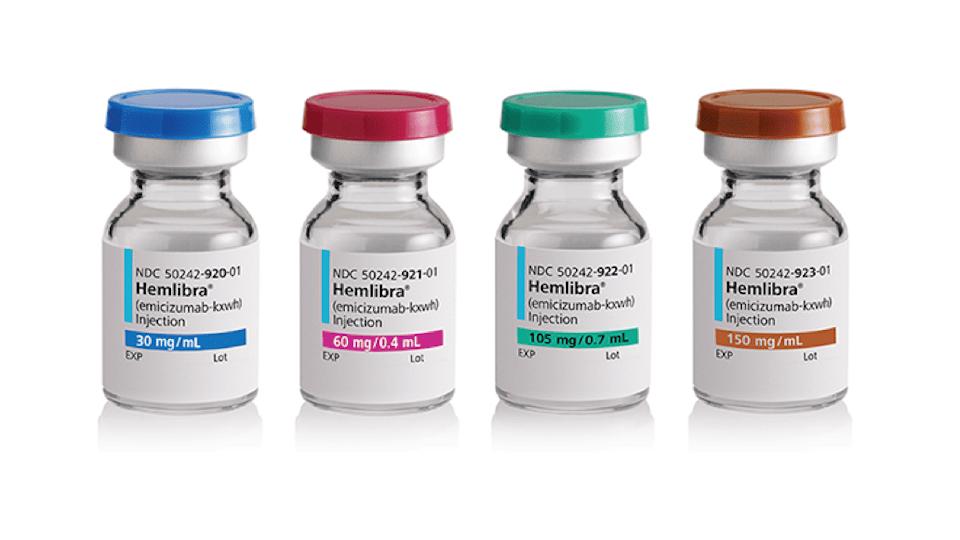Roche reveals haemophilia drug data ahead of label expansion decision

Roche has revealed new trial data that make the case for use of its haemophilia A drug Hemlibra in an expanded patient group, ahead of a decision by the FDA in the autumn.
Hemlibra (emicizumab) is already approved for patients with inhibitors, which are produced by the body and prevent factor VIII replacement therapy from working properly.
But the new phase 3 HAVEN 3 study shows Hemlibra also works in patients aged 12 years or older who have not produced inhibitors, unlocking a large portion of the market in patients treated with standard care of recombinant factor VIII therapy.
The FDA is set to decide on whether Hemlibra can be used in the larger patient group by October 4.
Findings published in the New England Journal of Medicine showed Hemlibra prophylaxis administered subcutaneously every week or every two weeks significantly reduced treated bleeds by 96% and 97% respectively compared with no prophylaxis.
Results also showed that 55.6% of people treated with Hemlibra every week and 60% of people treated with Hemlibra every two weeks experienced zero treated bleeds, compared to 0% of people treated with no prophylaxis.
In a comparison of people who previously received factor VIII prophylaxis in a prospective non-interventional study and switched to Hemlibra prophylaxis, Roche’s drug demonstrated a statistically significant reduction of 68% in treated bleeds, making it the first medicine to show superior efficacy to prior factor VIII prophylaxis treatment, the current standard of care.
Roche said there were no unexpected or serious adverse events related to the drug in the HAVEN 3 study, and the most common adverse events were consistent with previous studies.
The FDA has already granted the drug a faster, six-month priority review in this new indication and was granted Breakthrough Therapy Designation, to expedite the development and review of medicines for serious conditions that could represent a step forward over standard care
[caption id="attachment_30156" align="alignleft" width="101"] Sandra Horning[/caption]
Sandra Horning[/caption]
Sandra Horning, chief medical officer at Roche, said: “Current prophylactic treatment options for people with hemophilia A can require frequent intravenous infusions, and despite treatment, many continue to have bleeds that can lead to long-term joint damage.”
“Given the challenges many people face managing their hemophilia, we believe Hemlibra could make a meaningful difference, and we are working with health authorities to hopefully make this treatment available to people with hemophilia A without factor VIII inhibitors as soon as possible.”












